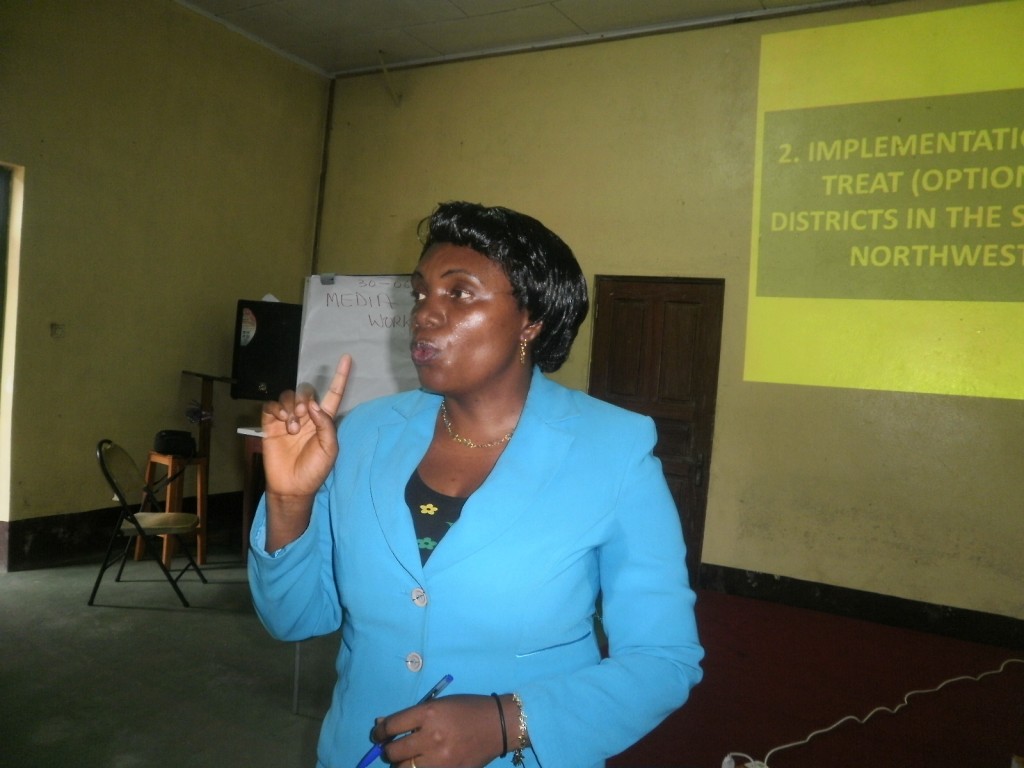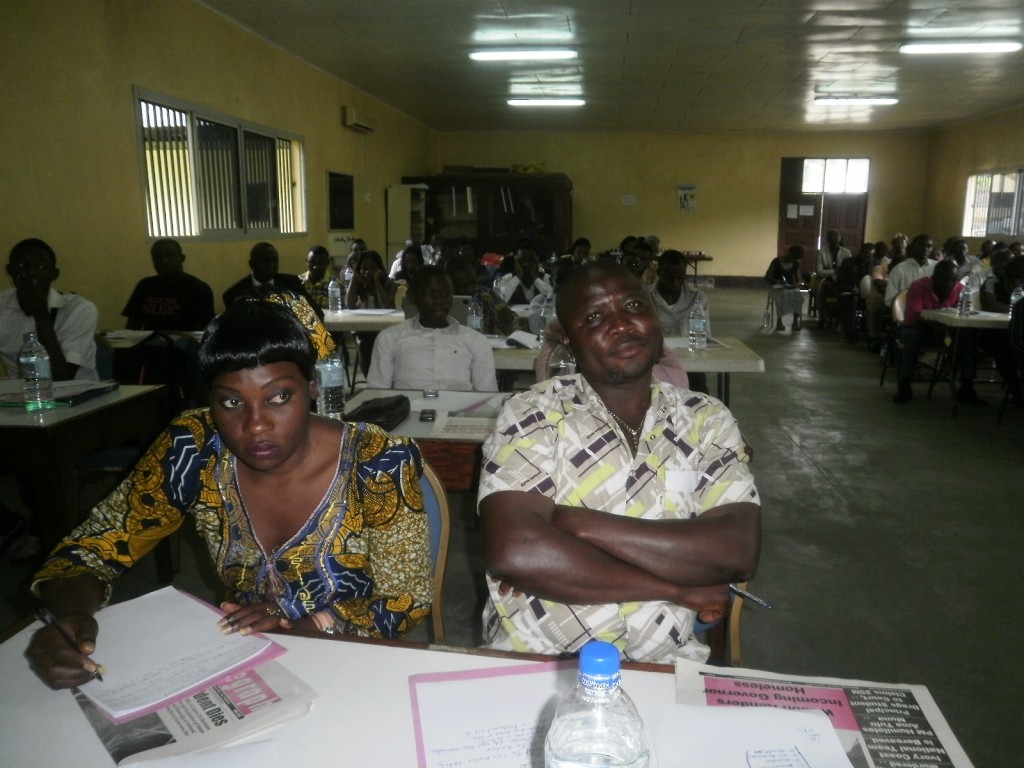Walter Wilson Nana
Buea, Cameroon
The Cameroon Baptist Convention, CBC, Health Services think that part of the fight against the HIV/AIDS pandemic is the quality of information given out to the public. As part of its HIV Free Southwest Project, whose intent is to scale up and strengthen the quality of Prevention of Mother to Child Transmission, PMTCT, the CBC Health Services invited more than 50 media practitioners across the Southwest Region to hone their skills as they report on the ailment.

Eveline Mboh Asongwe of the CBC Health Services - media practitioners must make health issues part of their daily news menu
Programme Manager of HIV Free Southwest Region, Eveline Mboh Asongwe told reporters and related media officials to integrate health matters in their daily activities and news items, while giving a careful thought at the content they dish out for public consumption.
According to Mboh the media has the responsibility to mobilise patients, members of the community, especially those living with HIV/AIDS to come to the health facilities for diagnosis and subsequently follow their treatment. “We have a community component in our project to sensitise the public on the importance of attending Ante Natal Care, ANC. And that is why we are working hand-in-glove with the media, so that they report health issues and HIV/AIDS as often as possible. Remember, health is wealth,” he explained.
Mboh said from the perspective of the CBC Health Services, the HIV/AIDS prevalence in Cameroon is dropping. “I am talking about the number of people who have been diagnosed with HIV/AIDS. From 2000, the prevalence was 11.5%, today, it is 5.56%. At CBC Health Services, we wrote some abstracts to indicate our contribution in this drop in the prevalence from the population. At the national level, from the demographic health studies, you recall our prevalence was 5.5%, now it is 4.3% as per the last study that I know about. More surveys have conducted. So, we are upbeat that the prevalence is on the decrease, with the experience we are gathering from the Prevention of Mother to Child Transmission programme,” she indicated.
The Healthcare official mentioned that the CBC Health Services is joining forces with the Ministry of Public Health to do away with HIV/AIDS in Cameroon, alongside the plethora of partners involved in the health sector and HIV/AIDS in particular. “We have about three different components dedicated to various aspects of the fight against HIV/AIDS; the youths, the orphans, prevention from mother to child transmission and treatment for those already affected.”
She will express delight that the HIV Free Southwest Programme is on course and meeting expectations. “We are standing tall and the key objective is the uptake of ANC. The other six objectives are being implemented without difficulties and in the next five years, we are hopeful we will be where we want to be. Though we are limited by the number of women who come for ANC, and benefit from what we have to offer, we are inviting the media to do more in terms of sensitisation. From the data we have on people coming for treatment, we are happy that we are meeting the objectives,” Mboh noted.
Two journalists of CRTV Southwest Regional Station with deep interest in health reporting; Julius Teke and Matute Menyoli shared their experiences with colleagues, while indicating that HIV/AIDS messages, newspaper, radio and TV reports should not cast doubts in the minds of the reader, listener and viewer but the respective reports should be inclusive in nature.
The aforementioned reporters expressed the need for clarity, accuracy, balance, relying on sources and professionals in health issues, while watching out for taboos and stereotypes. They entreated media practitioners to always be on the learning side, reminding colleagues that knowledge is evolving with the changing times.




